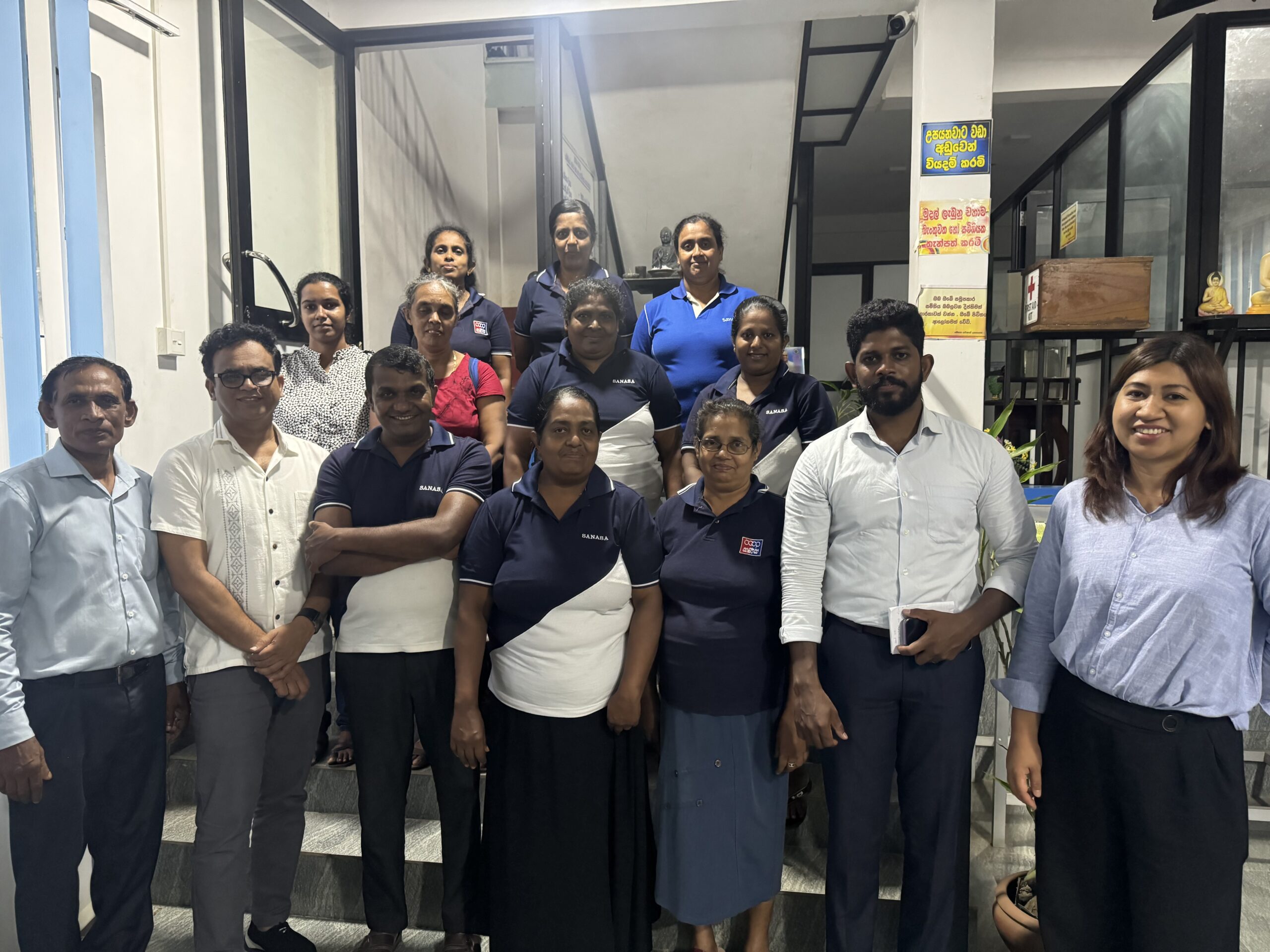Founded in 1986 with just 14 members and an initial capital of LKR 240 (USD 1), the Habalakkawa Sanasa Society has grown into a thriving cooperative with 1,500 active members and assets totaling LKR 300 million (USD 1 million). The cooperative operates with seven affiliated societies and is governed by a board of seven directors. Over the years, it has strengthened its role in agricultural production, focusing on pepper and poultry while supporting its members through sustainable farming initiatives.
In July 2023, the cooperative made a key investment in a drying machine, significantly enhancing its production capacity and product quality. This development has allowed the cooperative to expand into value-added pepper products, including black pepper sauce, which is now being sold in hotels in Colombo. To further widen market opportunities, the cooperative is in discussions with Sanasa Green Mart and has initiated product exchanges with potential buyers in Canada, India, and Vietnam.
Looking ahead, the cooperative has developed a five-year expansion plan that focuses on scaling up its operations by purchasing raw pepper in bulk, improving value addition through enhanced processing and packaging, and strengthening market access. This strategy aims to increase profit margins for members while maintaining sustainable and certified agricultural practices. To support this growth, the cooperative is seeking financial assistance through loans to improve working capital, ensuring it can process larger orders without cash flow interruptions.
The cooperative’s 10-acre farm yields approximately 18,500 kilograms of raw pepper. Members sell their produce to the cooperative at LKR 350 (USD 1.2) per kilogram. The processing costs include transportation (LKR 1,200/USD 4 per trip), labor (LKR 1,000/USD 3.5 per day), and cleaning (LKR 400/USD 1.3 per kilogram). In just two months of operating the drying machine, the cooperative generated a profit of LKR 96,000 (USD 327), highlighting the potential for increased income through improved processing efficiency.
Habalakkawa Sanasa Society provides extensive support to its farmer members, including free seedlings to promote crop expansion. The cooperative follows sustainable farming practices, using organic fertilizers and holding GAP (Good Agricultural Practices) certification. With an experienced team skilled in market timing and product pricing, the cooperative ensures competitive pricing and optimal sales.
To enhance processing efficiency, the drying machine and seed separator are centrally located at the secretary’s residence, ensuring easy access for members. Additionally, SANASA members remain connected through a WhatsApp group, sharing best practices and updates on agricultural and market developments. The cooperative also collaborates with government programs on organic fertilizer production and sustainable farming initiatives.
Despite its successes, the cooperative faces several challenges. Limited access to larger markets remains a key hurdle, restricting potential sales growth. Additionally, operations were temporarily halted due to smoke emissions from the drying machine, requiring clearance from the environmental department before resumption. Transporting processed products from the machine’s location to storage or sales centers also presents logistical difficulties, impacting efficiency.
As Habalakkawa Sanasa Society continues to strengthen its operations, it remains focused on addressing these challenges while scaling up production and market engagement. With strategic investments, strong member participation, and sustainable practices, the cooperative is well-positioned for continued growth in Sri Lanka’s spice industry.
The Habalakkawa Sanasa Society is one of the partner organizations supported by the APFP-FO4A program, which is implemented in Sri Lanka by SANASA International.
The Asia Pacific Farmers’ Programme (APFP)- Support to Farmers’ Organizations for Asia (FO4A) aims to contribute to an enabling environment for rural poverty reduction, through instrumental support to rural smallholders and their organizations at national, sub-regional, and regional levels in Asia and the Pacific. The objective is that by the end of the program, farmer organizations are professionally capacitated to provide sustainable demand-driven (business and technical) services to their members and engage in effective policy dialogue for the improved livelihoods and incomes of smallholder farmers/producers in Asia and the Pacific. APFP-FO4A is implemented in Cambodia, Indonesia, Laos, Myanmar, Philippines, Thailand, Vietnam, Bangladesh, India, Nepal, Pakistan, Sri Lanka, Mongolia, and China. APFP-FO4A benefits around 25 million individuals–of which 4.5 million are women and 4 million are youth. APFP is financed by the International Fund for Agricultural Development (IFAD) and FO4A is co-financed by the European Union (EU) and IFAD.
APFP-FO4A is implemented by the consortium Asian Farmers’ Association for Sustainable Rural Development (AFA) and La Via Campesina (LVC).
Click here to view more photos




Comments are closed